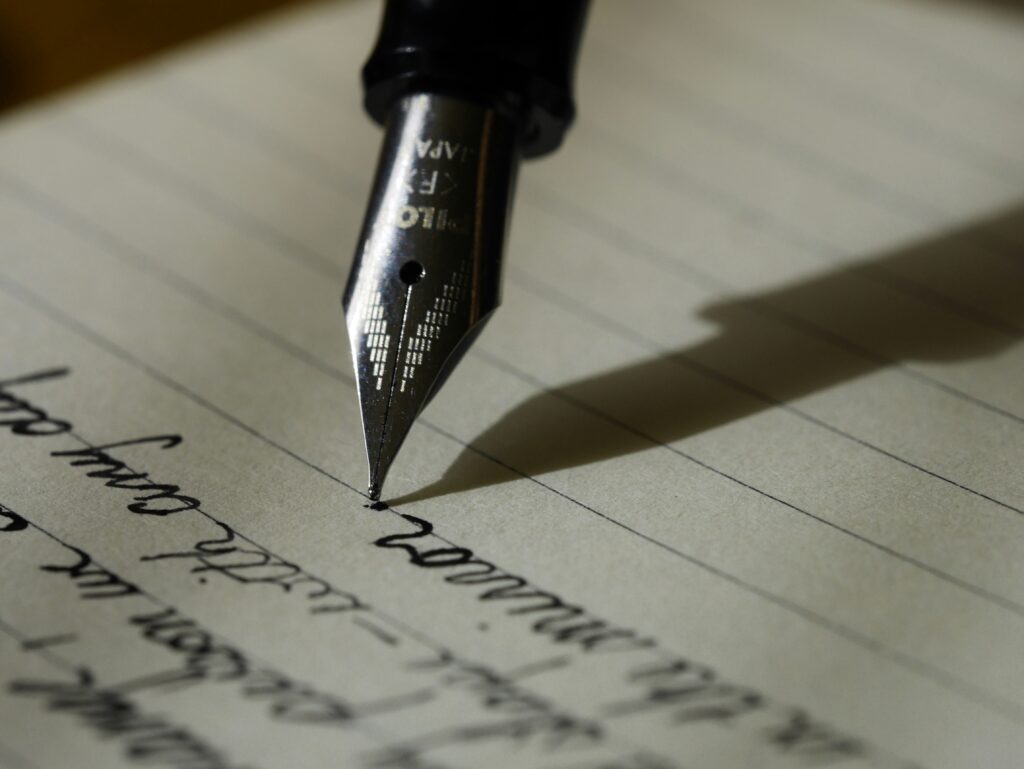
Imagine starting each day with a clear head and a sense that your thoughts are organised. There’s a daily ritual that can help you do just that, called ‘morning pages’.
It’s a bit like journaling but with a few significant tweaks. We’ll take a closer look at how to do Morning Pages.
What are Morning Pages?
‘Morning pages’ is a journaling technique first developed by US writer and teacher Julia Cameron in her work The Artist’s Way. Her recommended daily ritual is simply to write down the first things that come into your head, and keep writing until you’ve filled three pages. By externalising what you’re thinking, you will naturally feel calmer and can begin to disentangle any complicated thoughts and feelings.
How do you get started with Morning Pages? In the morning, when you have time but ideally before work, get a notebook and pen. Write three pages in longhand of whatever comes into your head – you sometimes hear Morning Pages described as ‘stream-of-consciousness journaling’. Don’t pause or reflect too much, but simply write. But how does doing this help you? Let’s take a look at some of the benefits.
Benefits of daily writing
- Writing clears your mind. You may recognise that feeling when you wake up and your head is spinning with thoughts about what the day holds and what happened the day before. Getting these thoughts down on paper can help get them out of your head.
- Morning Pages allow you time for self-reflection. How often do you really take time to acknowledge your thoughts, ideas and concerns?
- Writing things down can lead to solutions. As you externalise your thoughts and feelings, ideas may spring into your head – it’s a great way to unconsciously problem solve.
- You can silence your inner critic. By writing down negative and unhelpful thoughts, they’re out in the open and easier to quash.
- You start the day feeling creative. Your brain (and hand) are warmed up nicely, your mind has been emptied of its muddled morning thoughts and you’re ready for the day.
How do I write Morning Pages?
How do you know what to write in your Morning Pages? It really is simply the first thing that comes into your head. Even if you produce three pages on the subject of ‘I don’t know what to write about’, that doesn’t matter. The point is that nobody else ever needs to read it – nor do you.
So don’t pause, don’t overthink and don’t go back and cross anything out. The main point is the mindful act of writing, and the content itself is not important.
What about typing your Morning Pages? Morning Pages advocates often say to write your pages in longhand, as the slow speed and physical connection with the paper is part of the process. However, this approach isn’t inclusive because not everyone is able to write by hand, and typing is certainly better than not writing at all. The key, really, is vowing to not edit anything.
Another frequently asked question is: why three pages? Why stop there if you’re on a roll, or why write two pages of utter nonsense if you’ve run out of thoughts? The answer is that three pages is a nicely balanced amount, and it’s also a realistic daily ritual.
A single page isn’t enough to challenge you: you could easily fill that writing about how you’re about to make a coffee. Three pages pushes you to write beyond your initial thoughts, and this is where any solutions and solace will be found.
What about carrying on beyond three sides? The idea behind Morning Pages is that it becomes part of your daily routine and serves the purpose of clearing your head for the day. By creating boundaries, the ritual stays manageable and doesn’t stray into other territories (such as deeper self-analysis). So, try to keep it to three pages, but if you find yourself needing to bleed into another page to complete your sentence the odd time – that’s ok.

Morning Pages tips
If you’d like to try writing Morning Pages, here are a few tips to get you started.
1. Have the right tools
It’s a low-maintenance activity: you just need a pen and paper. Most people use a notebook for convenience, and you’ll need to make sure you have a pen or pencil that you’re comfortable with. Ideally, Morning Pages are handwritten, but you can also settle comfortably with your laptop or tablet.
2. Schedule a time
The clue is in the name. Aim to write as early in the day as you can while your morning thoughts are still hurtling around your brain. Obviously, we all have morning routines involving things like school runs, dog walks and getting ready for work, so finding a slot may feel like a challenge. You could always set your alarm a little bit earlier.
3. Are you sitting comfortably?
Choose a comfortable spot where you’ll not be distracted. You could even write sitting up in bed, leaning on a tray or bigger book. Make this a cosy and comfortable part of your day, with a nice cup of coffee or tea and maybe the cat or dog by your side.
4. Just write
You’re staring at the blank page of your open notebook. Where do you start? The rule is not to overthink, so just start writing. This means that a lot of Morning Pages examples will start with something like, ‘I’m writing for the first time today, and I have no idea what to write!’ Even if your first few days are nothing but musings about what on earth to say, at least you’re writing.
5. Use Morning Pages prompts
You can always use prompts to help you write your Morning Pages. Keep a list of starter topics, sentences or questions at the back of your notebook that you can refer to if needed. This isn’t cheating – it’s just getting you started. Once you’ve written a few lines, your thoughts will take over, and your writing will flow naturally. Here are a few Morning Pages prompts you could try:
- What am I looking forward to today?
- Is there anything worrying me about today?
- What is my week looking like?
- What do I wish I was doing this week?
- How do I feel at the moment?
- How do I physically feel this morning?
- What’s my favourite thing in this room?
- How am I finding morning pages so far?
6. Don’t self-censor
Morning Pages need to be honest. If you look at the benefits we mentioned earlier (such as self-reflection, problem-solving, and silencing your inner critic), you’ll see how these all rely on honesty and openness. Sometimes it’s hard to admit to things, even to yourself – but the relief you’ll feel when they’re down on paper makes the effort worthwhile.
7. Move on
Written three pages? Excellent. Close the notebook, put it away and get on with the rest of your day. Don’t go back to it, and certainly don’t change anything you wrote. That’s it until tomorrow morning.
8. Stick to the rules
Morning Pages is a beautifully simple activity, with just a few rules. These are:
- Always write three pages.
- Write daily, in the morning.
- Don’t share your writing with anyone.
- Be honest, and don’t edit your words.
All you need is a pen, paper, and a bit of time each day. Try it and see where your thoughts take you.
Writer and time management expert Oliver Burkeman is an advocate of morning pages. Discover more wise advice from Oliver in his BBC Maestro course about Time Management, where he explores our relationship with time management, and looks into other techniques that help us lead a fulfilling life.





